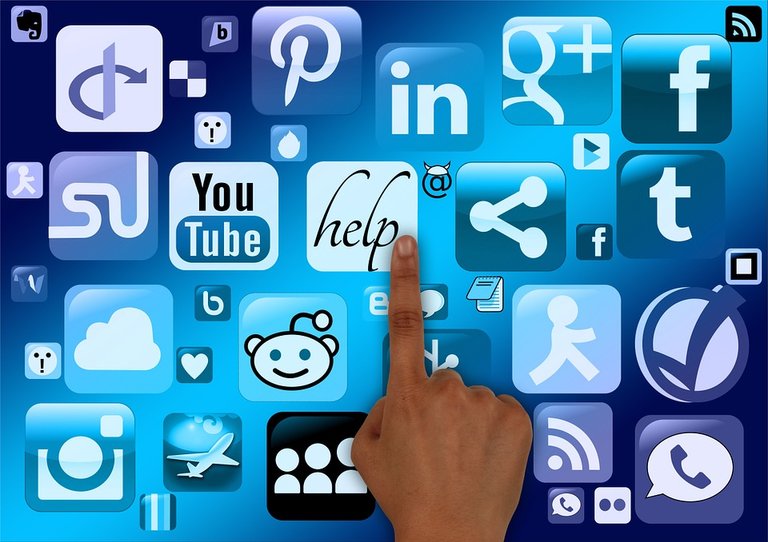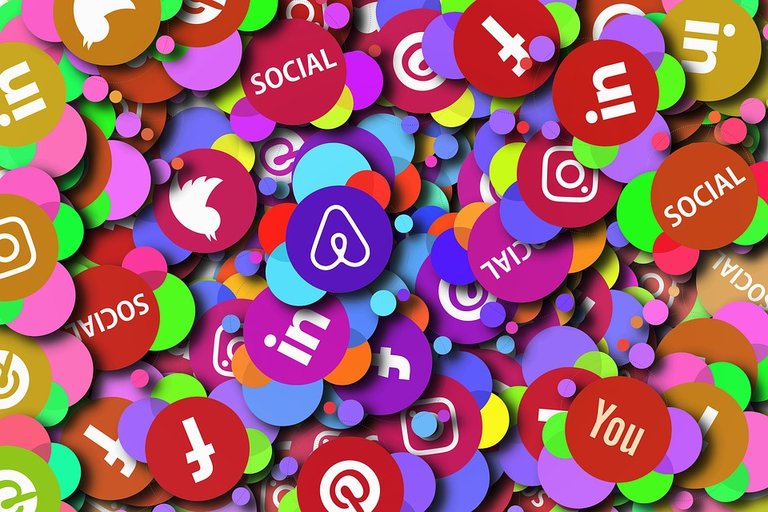Una introducción necesaria
Pensar en el desarrollo de la sociedad y de todas sus esferas sin el uso de estos medios es prácticamente imposible, porque son, entre otras cosas, las principales generadoras de comunicación, información, recursos técnicos, recursos científicos y tecnológicos tan necesarios para el desarrollo de todo cuanto se hace.
Sin embargo, el mal uso de estas tecnologías trae aparejado consigo problemas irreversibles para la salud, eso es verdad; pero la no utilización de estas no te exime de esa responsabilidad contra tu salud porque puedes convertirte en un enfermo pasivo de las redes sociales sin saberlo.
Varias preguntas podríamos hacernos:
¿Es positivo o no el uso de las redes sociales?
¿Cuáles son las herramientas que debo usar para no ser dependiente de las redes sociales?
¿Cómo podemos desde nuestra posición de adultos incidir en un uso saludable de las redes sociales?
A estas y otras interrogantes daremos respuestas en esta publicación e invitamos a @nony, @ram7 y a @estelacha a que dejen sus opiniones en torno al tema.
Algunos elementos sobre las redes sociales
Cuando usted revisa la literatura que aborda estos temas o sencillamente piensa en la utilización de ellas se percata que las redes sociales es una forma de interacción entre las personas. Por su experiencia sabe que esta interacción usted la va realizando según sea su interés y la de otras personas, como, por ejemplo, la que hacemos aquí en Hive, en la que nos relacionamos entre muchos, pero, en las comunidades buscamos nuestros puntos en común.
Para tener una idea de la rápida expansión de las redes sociales baste decir que la radio tardó 38 años aproximadamente para llegar a 50 millones de personas, la televisión tardó 13 e internet tardó 4 para llegar a la misma cantidad de habitantes. Sin embargo, Facebook alcanzó los 400 millones de usuarios en apenas 3 años. Esta información brindada por un profesor que tuve en mi especialidad de Psicopedagogía y que vi en un video de una red social llamada You tube, planteaba varias interrogantes que aquí se las dejo y que, ayudarán al debate que sobre el tema nos propone @emiliorios.
¿Puede desconocerse el uso de las redes sociales?
¿Debemos dejar de utilizarlas por el miedo a enfermarnos?
¿Es positivo o negativo el uso de ellas?
Lo positivo de las redes sociales
Desde mi experiencia personal los elementos positivos que aportan las redes sociales son infinitos, siempre y cuando su uso sea racional y placentero. Entre las ventajas que veo en su uso están:
•Su carácter interactivo con otras personas.
•Sirve como una importante fuente de búsqueda de conocimientos.
•Son un canal efectivo de la comunicación.
•Acortan distancias geográficas.
•Un canal de entretenimiento.
Efectos negativos del mal uso de las redes sociales
A pesar de lo anterior, su uso desmedido puede traer efectos negativos. Entre otros elementos podemos referirnos a:
•Problemas de salud como estrés, insomnio y otros.
•Problemas de dependencia.
•Suplantación de identidad.
•Puedes sufrir robos de información, fraude y otros tipos de engaño.
Siete claves para usar saludablemente las redes sociales en. Opinión del autor
Ante esta situación y teniendo en cuanta que el uso de las redes sociales llegó para quedarse usted debe prepararse y preparar a su hijo, para que su utilización sea lo más positiva posible. Por tales razones, aquí les dejo estas claves que he compartido, sobre el uso de las redes sociales
•Ejemplo personal. La mejor manera de educar es con el ejemplo. No le diga al niño algo y actúe en sentido contrario porque para él lo más importante es su manera de comportarse y conducirse y él debe ver una actuación coherente entre lo que usted dice y hace. A esto también le llamo responsabilidad.
•Comunicación permanente con tu hijo: La comunicación es un proceso clave en la interrelación de los seres humanos y, en el caso padre-hijo es vital, para alcanzar resultados positivos en su formación integral. Por tal razón, es vital saber qué consume su hijo en las redes sociales, cuáles son las que más visita, sus gustos, etc. Reitero la idea que lo importante no es saber computación, sino, saber cómo conducir a su hijo en este tema y guiarlo lo mejor posible.
•Informarse: Es preciso que el padre, madre o adulto que conduce los destinos del hogar se informe sobre las bondades y dificultades de estas plataformas digitales, que conozca sus funciones esenciales y lo más importante, que sepa cómo guiar a los adolescentes, niños y jóvenes en esta actividad.
•Aprender y capacitar al niño o adolescente: Si predicar con el ejemplo es la mejor manera de educar; dominar y tener conocimiento sobre una materia es la mejor manera de ganarse el respeto del otro. Si un niño aprecia que usted tiene dominio de esta materia y puede guiarlo más difícil le resultará intentar engañarlo.
•No prohibir su uso. Esto es fatal porque el ser humano es propenso a lo prohibido. Cuando usted dice que algo es ilegal o ilícito al ser humano le encantará saber por qué. En este sentido de lo que se trata es que el menor llegue a saber la utilidad de las redes, pero, también sus problemáticas y esto no lo aprenderá si se le prohíbe su uso porque, en cualquier lugar interactuará con ellas.
•Actividad física: Esto es vital porque le da otra perspectiva al niño y le favorece en el desarrollo de su salud física y mental. Esto debe ir acompañado con criterios, sobre el tiempo que se deben usar y evitar esa práctica nociva de ver cómo no nos atendemos en ningún lugar por estar pendiente de las redes sociales.
•Ante una duda no actúe, consulte: Esto lo sugiero siempre. Si tiene alguna duda busque ayuda de quien puede dársela.
Un comentario final
Las redes sociales llegaron para quedarse y lo más sensato es que busquemos herramientas y/o alternativas que nos permitan conducirnos de la mejor manera posible con nuestros menores.
Debemos entender que nosotros nacimos en la era analógica y ellos en la era digital. Muchos de esos niños tienen más conocimientos que nosotros, para operar los dispositivos tecnológicos y las redes sociales, pero, no tienen más experiencias que nosotros ni conocen los mecanismos para manejar esto como lo harían los adultos.
De lo que se trata es de buscar el justo medio, para que la utilización de las redes sociales sea un elemento positivo en la vida de nuestros infantes, adolescentes y jóvenes.
Nota. He utilizado en traductor DeepL Translate.
Las imágenes las tomé de Pixabay.
ENGLISH
A necessary introduction
This is one of the most universal topics that can be dealt with today because it is very difficult for anyone to escape the use of New Information and Communication Technologies, the use of social networks or not being connected to an electronic device.
To think of the development of society and all its spheres without the use of these media is practically impossible, because they are, among other things, the main generators of communication, information, technical resources, scientific and technological resources so necessary for the development of everything that is done.
However, the misuse of these technologies brings with it irreversible health problems, that is true; but not using them does not exempt you from this responsibility against your health because you can become a passive patient of social networks without knowing it.
We could ask ourselves several questions:
Is the use of social networks positive or not?
What are the tools I should use to avoid being dependent on social networks?
How can we, as adults, influence a healthy use of social networks?
To these and other questions we will give answers in this publication and we invite @nony, @ram7 and @estelacha to leave their opinions on the subject.
Some elements about social networks
When you review the literature that addresses these issues or simply think about the use of them, you realize that social networks are a form of interaction between people. From your experience you know that this interaction is done according to your interest and that of other people, as, for example, what we do here in Hive, in which we relate among many, but in the communities we look for our common points.
To get an idea of the rapid expansion of social networks, suffice it to say that it took radio approximately 38 years to reach 50 million people, television took 13 years and the Internet took 4 years to reach the same number of inhabitants. However, Facebook reached 400 million users in just 3 years. This information provided by a professor I had in my specialty of Psychopedagogy and that I saw in a video of a social network called You tube, raised several questions that I leave here and that will help the debate on the subject proposed by @emiliorios.
Is it possible to ignore the use of social networks?
Should we stop using them for fear of getting sick?
Is their use positive or negative?
The positive aspects of social networks
From my personal experience, the positive elements of social networks are infinite, as long as their use is rational and pleasant. Among the advantages I see in their use are:
- Its interactive nature with other people.
- It serves as an important source of knowledge search.
- They are an effective channel of communication.
- They shorten geographical distances.
- An entertainment channel.
Negative effects of the misuse of social networks
Despite the above, its excessive use can have negative effects. Among other elements we can refer to:
- Health problems such as stress, insomnia and others.
- Dependency problems.
- Identity theft.
- You can suffer information theft, fraud and other types of deception.
 fuente/source
fuente/source
Seven keys to healthy use of social networks in. Author's opinion
Given this situation and taking into account that the use of social networks is here to stay, you should prepare yourself and your child, so that their use is as positive as possible. For these reasons, here are the keys I have shared about the use of social networks.
Personal example. The best way to educate is by example. Do not tell the child something and act in the opposite direction because for him the most important thing is the way you behave and conduct yourself and he must see a coherent action between what you say and what you do. I also call this responsibility.
Permanent communication with your child: Communication is a key process in the interrelation of human beings and, in the case of parent-child, it is vital to achieve positive results in their integral formation. For this reason, it is vital to know what your child consumes on social networks, which ones he/she visits the most, his/her likes, etc. I reiterate the idea that the important thing is not to be computer literate, but to know how to guide your child in this matter and guide him/her as best as possible.
Be informed: It is necessary that the father, mother or adult who leads the destinies of the household is informed about the benefits and difficulties of these digital platforms, to know their essential functions and most importantly, to know how to guide adolescents, children and young people in this activity.
Learn and train the child or adolescent: If leading by example is the best way to educate; mastering and having knowledge about a subject is the best way to earn the respect of the other. If a child appreciates that you have mastery of the subject and can guide him, it will be more difficult for him to try to trick you.
Do not forbid its use. This is fatal because human beings are prone to the forbidden. When you say that something is illegal or illicit, the human being will love to know why. In this sense, what is important is that the child gets to know the usefulness of the networks, but also their problems, and he will not learn this if he is forbidden to use them because he will interact with them anywhere.
Physical activity: This is vital because it gives the child another perspective and favors the development of their physical and mental health. This must be accompanied with criteria, about the time they should be used and avoid that harmful practice of seeing how we do not attend anywhere to be aware of social networks.
When in doubt, do not act, consult: I always suggest this. If you have any doubt seek help from those who can give it to you.
A final comment
Social networks are here to stay and the most sensible thing to do is to look for tools and/or alternatives that allow us to conduct ourselves in the best possible way with our children.
We must understand that we were born in the analog era and they were born in the digital era. Many of these children have more knowledge than we do, to operate technological devices and social networks, but they do not have more experience than we do, nor do they know the mechanisms to handle this as adults would.
What we need to do is to find the right balance, so that the use of social networks is a positive element in the lives of our children, adolescents and young people.
Note: I have used the translator DeepL Translate.
The images were taken from Pixabay.



